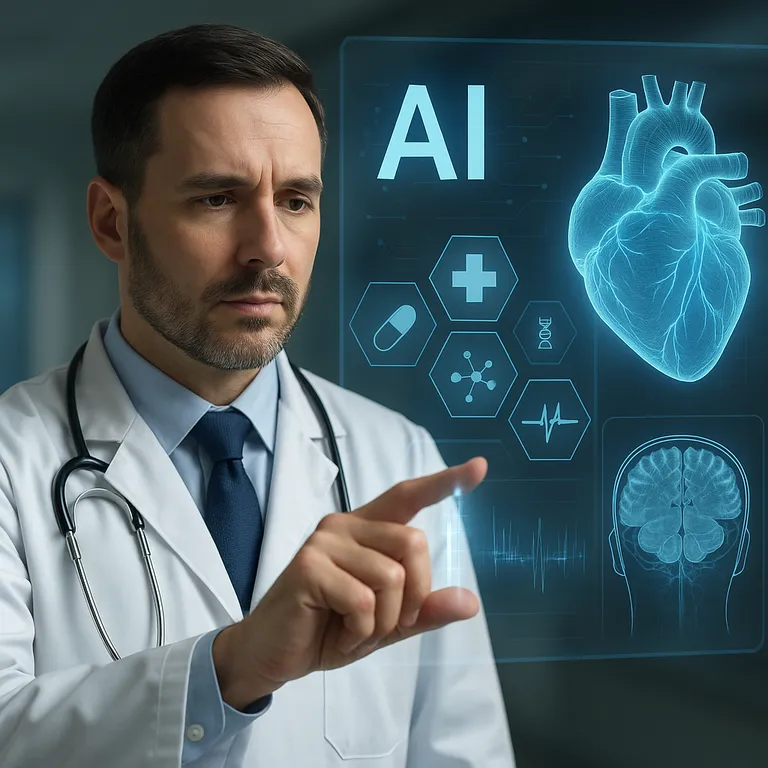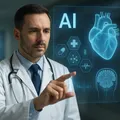A New Era of Medicine Has Arrived
In 2025, artificial intelligence isn’t science fiction — it’s the heartbeat of modern medicine.
From diagnosing cancer earlier than ever to predicting heart attacks before they happen, AI is transforming healthcare and giving doctors tools that were once unimaginable.
Technology is no longer replacing humans — it’s empowering them to save more lives.
🧠 Smarter Diagnoses, Faster Results
One of the most groundbreaking uses of AI in healthcare is in medical diagnostics.
Algorithms trained on millions of medical images can now detect diseases like:
- Breast cancer — with accuracy rates over 95%, sometimes faster than human radiologists.
- Diabetes-related eye conditions — by analyzing retinal scans in seconds.
- Lung and skin cancers — using advanced image recognition tools that spot early warning signs invisible to the human eye.
These technologies don’t replace doctors — they act as digital assistants, ensuring no small detail is overlooked.
💓 Predicting Heart Attacks Before They Strike
AI systems now analyze patient data — heart rate, blood pressure, lifestyle patterns, even genetics — to predict cardiovascular risks.
Hospitals are using AI-driven monitoring systems that alert doctors hours before a potential cardiac event, giving them precious time to act.
Imagine a world where your smartwatch or hospital monitor can warn you before your heart does — that world has arrived.
🤖 Robots in the Operating Room
In surgical theaters across the U.S. and Europe, AI-powered robots are assisting doctors with:
- Microsurgeries that require extreme precision.
- Remote operations that allow top surgeons to operate from miles away.
- Real-time adjustments during surgery based on patient vital signs.
These robotic systems reduce human error, shorten recovery times, and make complex surgeries safer than ever.
📱 Personalized Medicine and Smart Monitoring
AI has moved beyond hospitals — it’s now in our pockets and homes.
Health apps and wearable devices analyze real-time data like:
- Sleep patterns
- Blood sugar levels
- Physical activity
- Stress levels
Using this information, AI can create personalized health recommendations, helping users prevent diseases rather than just treat them.
🧬 Drug Discovery at Record Speed
Traditionally, developing a new drug could take 10–15 years.
Now, AI is cutting that time dramatically by:
- Simulating how molecules interact with the body.
- Identifying the most promising drug candidates in weeks instead of years.
- Reducing research costs by billions.
This revolution is already saving lives — AI helped scientists identify potential treatments during global health crises faster than ever before.
⚖️ Ethical and Human Challenges
While the progress is remarkable, experts remind us that AI is a tool — not a replacement for compassion.
Issues like data privacy, algorithm bias, and patient consent are critical concerns.
Healthcare leaders are calling for ethical AI frameworks to ensure that technology serves humanity fairly and responsibly.
🌍 The Future of Healing
In 2025, artificial intelligence is more than a trend — it’s a revolution.
It’s helping doctors make faster, smarter, and more accurate decisions.
It’s saving lives, one algorithm at a time — and proving that when humans and machines work together, the future of medicine is brighter than ever.
By ✍️ Yorlinda Ramìrez- MicuPost Team
Sources:



